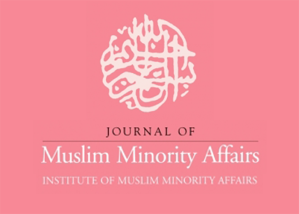 Really pleased to announce – and share – details about my new publication in the Journal of Muslim Minority Affairs. First published in 1979, the Journal is an established and highly respected and widely acclaimed academic and scholarly publication that is known for providing accurate, reliable and objective information on Muslim minority communities worldwide and so I am hugely honoured to have an article published in it.
Really pleased to announce – and share – details about my new publication in the Journal of Muslim Minority Affairs. First published in 1979, the Journal is an established and highly respected and widely acclaimed academic and scholarly publication that is known for providing accurate, reliable and objective information on Muslim minority communities worldwide and so I am hugely honoured to have an article published in it.
My piece is titled, “Islamophobia and the Problematization of Mosques: A Critical Exploration of Hate Crimes and the Symbolic Function of “Old” and “New” Mosques in the United Kingdom” and begins to explore how ‘old’ mosques are the targets of hate crimes as regularly as ‘new’ mosques despite there being very little scholarly inquiry into this. For this reason, I think that the findings are groundbreaking.
The article can be viewed here although be warned, if you don’t have an institutional subscription you may be asked to pay (listen to my talk on open access to hear my views about this model of publishing). Below, I’ve reproduced the abstract – enjoy.
Abstract
Most scholarly studies have tended to focus on the building of new and proposed mosques, and in particular how they are sites of conflict and contestation symbolic of wider “problems” associated with Muslims and Islam in the United Kingdom. This study focuses on an overlooked aspect within this, the extent to which attacks on mosques that are neither new nor proposed perform a similar symbolic function. Presenting new empirical evidence from research undertaken with ten mosques across the United Kingdom that had been targeted for attack, we begin by exploring the existing literature on the problematization of mosques using the lens of critical Islamophobia studies to do so. Setting out what is known about attacks on mosques in the British setting, empirical findings from the research are used to illustrate the type and manifestation of attacks experienced, going on to consider the drivers and catalysts for them. Exploring the similarities and differences between the conflict and contestation associated with new mosques and the attacks on mosques that are not new, this study concludes that some resonance exists in the symbolic function mosques continue to serve in the community. In conclusion, the significant resonance between Islamophobically motivated attacks against mosques with those against the individuals is considered.
View the article by clicking here.